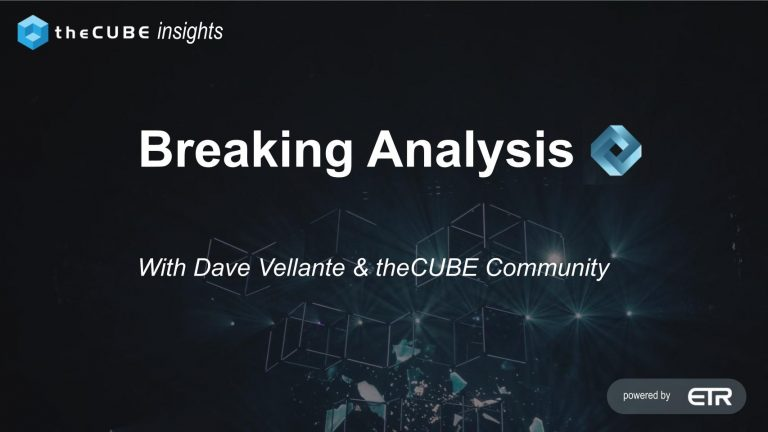The provided text is a list of popular GitHub repositories, including their names, descriptions, and star counts. Here's a concise summary: * The list includes a wide range of repositories, from programming languages and frameworks (e.g., Python, React, Angular) to tools and libraries (e.g., TensorFlow, PyTorch, Vue.js). * Many repositories are related to artificial intelligence, machine learning, and data science (e.g., OpenAI, DeepLearning, MachineLearning). * Some repositories are focused on web development (e.g., Web-Dev-For-Beginners, Front-End-Checklist), while others are related to system administration and infrastructure (e.g., Kubernetes, Docker). * The list also includes repositories for various other topics, such as computer vision, natural language processing, and cybersecurity. Overall, the list represents a diverse collection of popular and influential GitHub repositories, showcasing the breadth and depth of the open-source software ecosystem.
Read full article
April 25, 2025 • By Expert Panel®, Forbes Councils Member, Expert Panel®, Forbes Councils Member https://www.forbes.com/councils/forbestechcouncil/people/expertpanel/
The article discusses 19 emerging trends in container management, as shared by members of the Forbes Technology Council. These trends aim to optimize the speed, scalability, and stability of essential software. Some key trends include: 1. Increased automation, such as serverless containers for scalable AI deployments. 2. Enhanced security, including the use of tools like software bills of materials and component scanners. 3. Emphasis on collaboration, scalability, and operational efficiency throughout the software development life cycle. 4. The rise of eBPF (Extended Berkeley Packet Filter) for enhanced container observability and security. 5. Adoption of Kubernetes-native security for improved container security. 6. Use of small base images for better performance, security, and efficiency. 7. Adoption of Kubernetes-based service meshes like Istio for improved container orchestration. 8. Ephemeral containers with AI-driven orchestration for optimized workloads and enhanced security. 9. Decentralized or Distributed Application Bundles (DABs) for standardized packaging and distribution of complex cloud-native applications. 10. AI-driven autonomous scaling for dynamic adjustment of container workloads based on real-time demand. 11. Outcome-based container execution for optimized resource usage and reduced costs. 12. Detection, investigation, and remediation of Kubernetes drift for improved consistency, security, and reliability. 13. WebAssembly (Wasm) for lightweight, fast, and secure containerization. 14. Confidential containers leveraging Trusted Execution Environments (TEEs) for encrypted workloads in real-time. 15. GitOps for automated container deployments using Git repositories as the single source of truth. 16. Cloud-based containers with infrastructure as code (IaC) for lowered OpEx costs and automated security patches. 17. Edge-native container orchestration for optimized real-time data handling and performance. 18. Unified hybrid cloud experiences for efficient container and virtual machine management. 19. Composable Kubernetes architectures for optimized resources, avoided vendor lock-in, and seamless management of multicloud deployments. These trends aim to help businesses optimize their container management strategies and improve the performance, security, and flexibility of their software applications.

April 25, 2025 • By Katherine Bhambra, Senior Content Designer, GDS
The UK's Department of Environment, Food and Rural Affairs (DEFRA) has developed a Core Delivery Platform (CDP) to improve digital service delivery. The CDP is a platform-based approach that allows project teams to focus on business and public value add, rather than repetitive infrastructure building. It provides a set of common patterns and tools to ensure adherence to development standards, and enables self-service and on-demand deployments. The CDP has already shown improvement in deployment frequency, release time, and service failure recovery, with daily or hourly deployments, and reduced release times from months to hours. The platform is expected to increase speed and reliability, and provide greater autonomy for teams working on digital services across government departments.

April 25, 2025 • By Lee Gaines
The article "When /etc/h*sts Breaks Your Substack Editor: An Adventure in Web Content Filtering" by Lee Gaines discusses an issue encountered while writing a technical post about DNS resolution on Substack. The author found that typing the path to the hosts file (/etc/h*sts) triggered a "Network Error" and failed to autosave the draft. After investigation, it was discovered that the issue was caused by a Web Application Firewall (WAF) implemented by Cloudflare, which was blocking requests containing certain system paths to prevent path traversal and command injection attacks. The WAF was flagging paths like /etc/h*sts and /etc/pass*d as suspicious, causing the editor to fail. The author suggests that Substack improve the situation by implementing contextual filtering, clear error messages, and documented workarounds for technical writers. This would help balance protection and usability, allowing technical writers to discuss system configurations without encountering frustrating obstacles. The article highlights the complex challenges of building secure platforms that serve technical writers and the need for security measures to be implemented in a way that does not have unintended consequences for legitimate use cases. The author concludes by sharing workarounds, such as using quotes or alternative spellings, and invites readers to share their experiences with similar filtering issues on other platforms.

April 25, 2025 • By Andres Zunino, Forbes Councils Member, Andres Zunino, Forbes Councils Member https://www.forbes.com/councils/forbestechcouncil/people/andreszunino/
The article discusses the security concerns associated with Generative AI (GenAI) technology in enterprise applications. GenAI has revolutionized software development, offering benefits such as faster development timelines and reduced technical debt. However, it also introduces security risks, including limited transparency, biases from training data, and potential vulnerabilities. To address these concerns, organizations must view AI as a tool requiring careful supervision, thorough testing, and strategic integration within existing security frameworks. This includes using code scanning tools, human code reviews, rigorous testing, sandboxing, and governance frameworks to mitigate risks. By prioritizing code safety alongside innovation, organizations can capture the productivity benefits of GenAI while minimizing security risks. This approach can also create tangible business value, including cost avoidance, faster deployment timelines, increased innovation, and market differentiation. Ultimately, combining human expertise with strategic oversight is essential for managing risks and maximizing the long-term value of generative AI in enterprise applications.

April 25, 2025 • By Dave Vellante
The article discusses various episodes of the "Breaking Analysis" program, which provides independent and data-driven editorial content on the technology industry. The episodes cover topics such as the AI platform shift, Nvidia and Broadcom's strategies, cloud optimization, and the future of data platforms. Key points from the episodes include: 1. Nvidia and Broadcom are well-positioned to capitalize on the AI wave, with Nvidia focusing on AI computing and Broadcom on AI-enabled networking and storage. 2. The AI era will permanently change the world, with companies like Nvidia and Broadcom leading the way. 3. Cloud optimization is slowing, and AI services are becoming a significant contributor to revenue for hyperscalers like Microsoft. 4. Intel's foundry business is a bold bet, but its success is uncertain due to competition from established manufacturers and the rise of Arm-based architectures. 5. The future of data platforms will require a new architecture that can support intelligent applications in real-time, with companies like VAST Data and Fauna Inc. leading the way. 6. OpenAI's meltdown has created an opportunity for competitors to catch up, and Microsoft's lead in the AI market is at risk. 7. The adoption of generative AI is occurring across various frameworks, with data diversity influencing adoption patterns. 8. AI revenue is not yet showing up in earnings numbers, but it is expected to have a significant impact on productivity and earnings growth in the future. Overall, the episodes provide insights into the latest trends and developments in the technology industry, with a focus on AI, cloud computing, and data platforms.

April 25, 2025 • By Erin Doyle
The provided text appears to be a transcript of a podcast interview with Erin Doyle, a generalist engineer, discussing her journey, web accessibility, and creating a safe environment for developers to ask questions and collaborate. Here's a concise summary: Erin Doyle shares her experiences as a generalist engineer, from working on full-stack development to platform development, and her passion for web accessibility. She emphasizes the importance of understanding users' limitations and testing applications to ensure accessibility. Doyle also discusses the challenges of building products for engineers and the need for empathy and collaboration between developers and platform teams. The conversation highlights the importance of psychological safety in creating an environment where developers feel comfortable asking questions and seeking help. Doyle shares her personal experience of feeling pressured to prove herself as a senior engineer and how she created a toxic environment by setting an unrealistic standard. She now models vulnerability and encourages others to do the same, creating a safe space for collaboration and growth. Key points: * Web accessibility is crucial for ensuring equal experiences for all users. * Building products for engineers requires empathy and understanding of their needs and limitations. * Psychological safety is essential for creating a collaborative and supportive environment. * Modeling vulnerability and encouraging open communication can help create a safe space for developers to ask questions and seek help. * Collaboration between developers and platform teams is critical for success, and empathy is key to building strong relationships.

April 25, 2025 • By Jake Simmons
A public debate has erupted around Solana, which still labels its mainnet as "beta" over 5 years after launch. Helius Labs CEO Mert Mumtaz and critic Balarchrex argued on X about the beta tag, opacity of Foundation wallets, and client diversity on SOL's validator network. Mumtaz claimed the beta label is "arbitrary and meaningless" and that the chain's scale and revenue prove its production readiness. However, Balarchrex demanded transparency on the Solana Foundation's holdings and criticized the lack of client diversity, dismissing some clients as "just forks of the original Solana code." The debate devolved into personal barbs, with Mumtaz suggesting that critics should "sell your SOL if you're concerned." The discussion highlights ongoing concerns about Solana's transparency and production readiness.